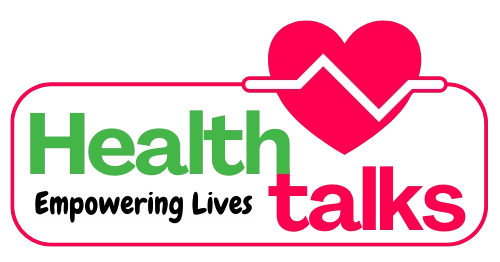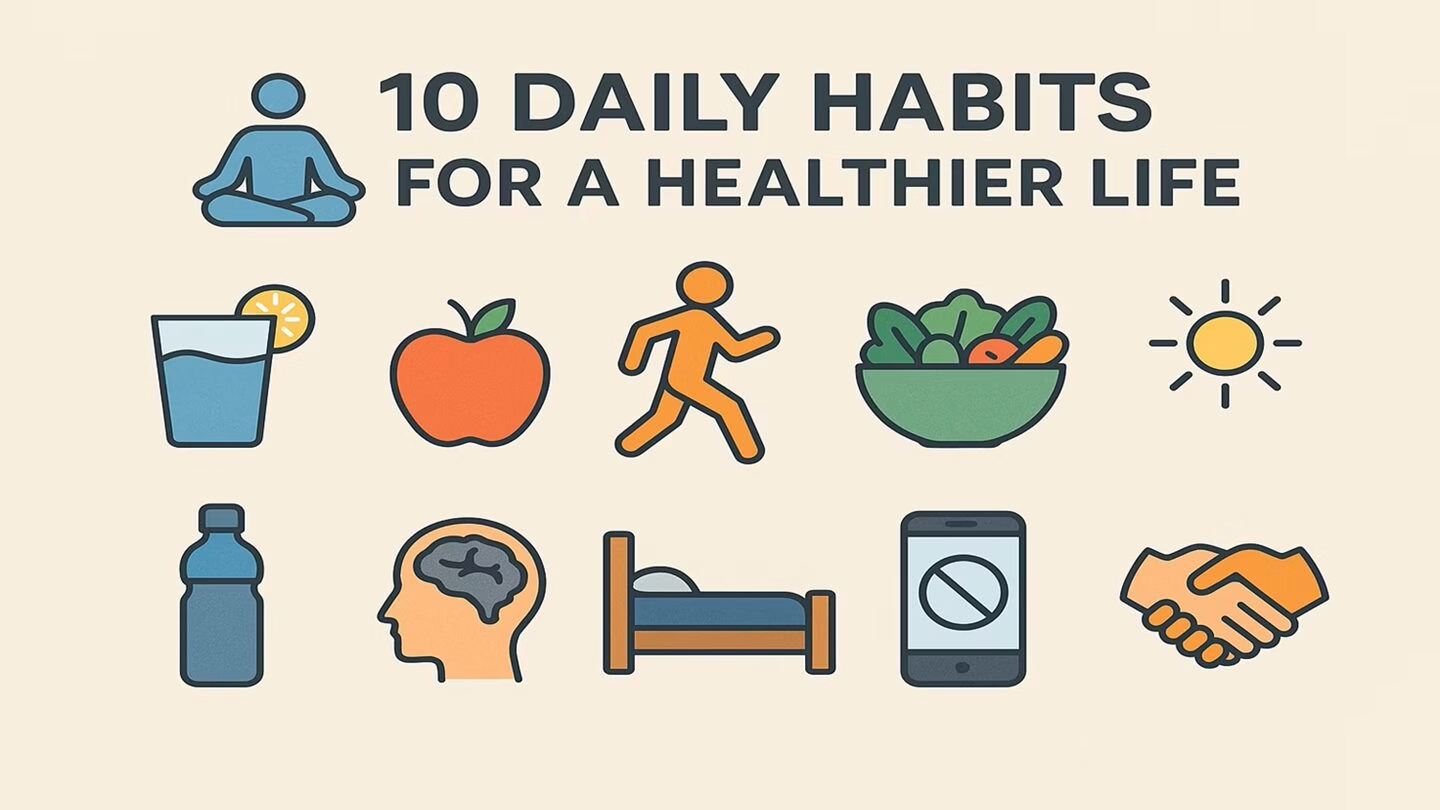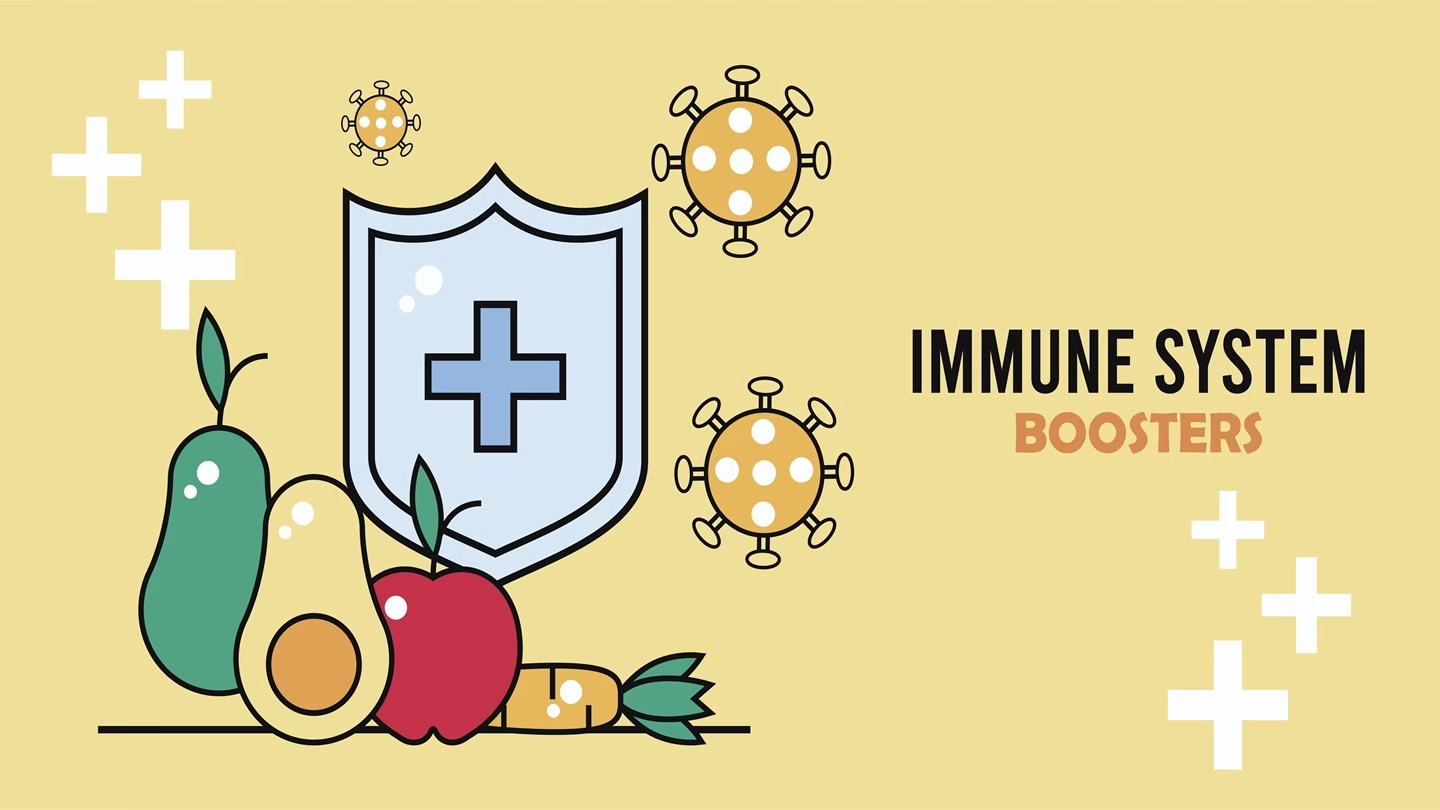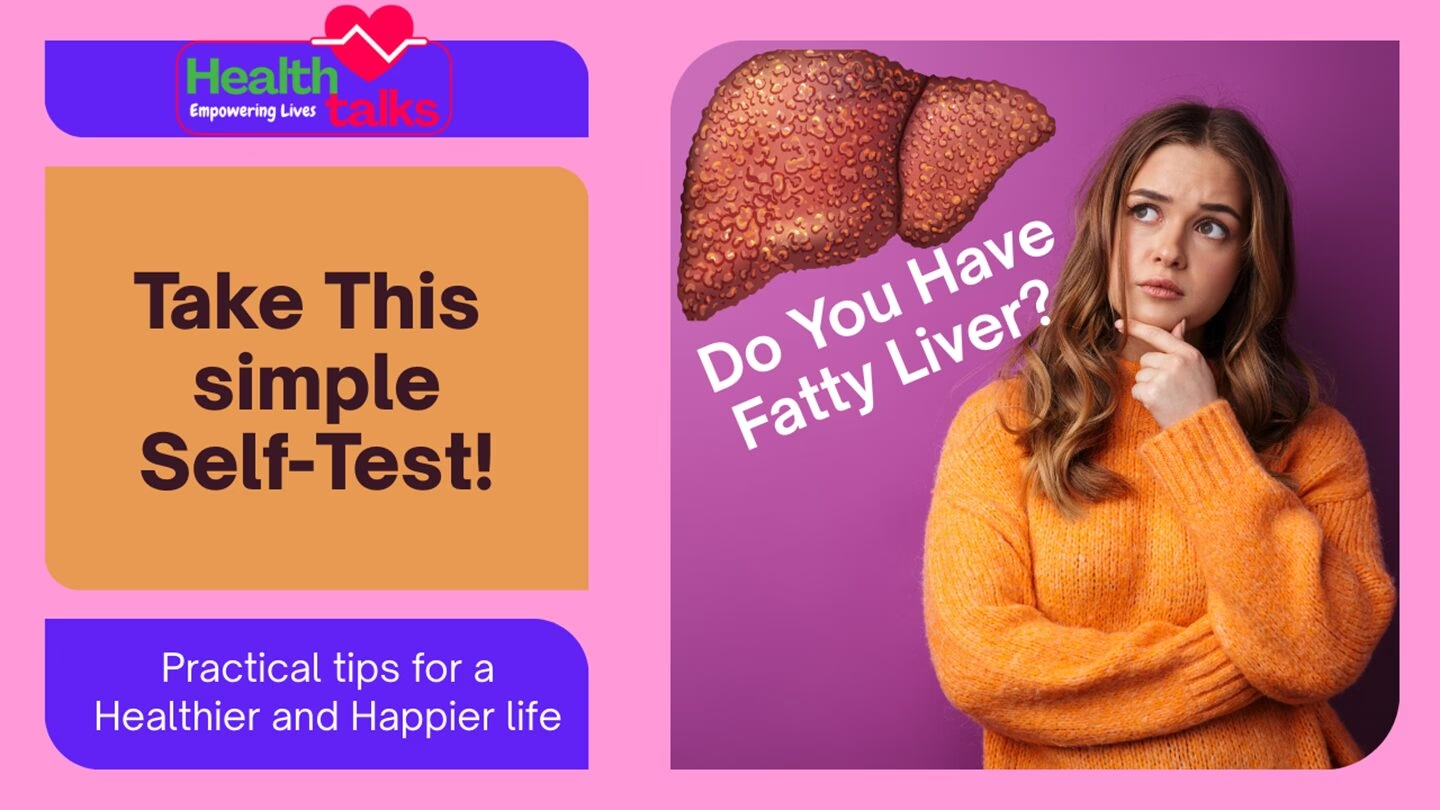Living a healthier life doesn’t always require major changes. Sometimes, it’s the simple daily habits that lead to long-term health benefits. Whether you’re trying to boost your energy, strengthen immunity, or manage stress, these 10 daily habits can guide you toward better well-being—physically, mentally, and emotionally.
🌅 1. Start Your Day with Water
After hours of sleep, your body is dehydrated. Drinking a glass of water first thing in the morning jumpstarts your metabolism, flushes out toxins, and hydrates your cells.
Pro tip: Add a slice of lemon for a vitamin C boost and better digestion.
🍎 2. Eat a Balanced Breakfast
Breakfast is your first opportunity to nourish your body. Choose meals that combine complex carbs, protein, and healthy fats to keep blood sugar stable and avoid mid-morning crashes.
Try this: Oatmeal with nuts and berries or whole-grain toast with avocado and eggs.
🚶♀️ 3. Move Your Body Daily
Even a 20-30 minute walk can improve circulation, support heart health, and enhance mood by boosting endorphins. If you work at a desk, take short stretch breaks every hour.
Options: Walking, cycling, dancing, or a home workout routine.
🥗 4. Prioritize Whole Foods
Focus on minimally processed foods rich in nutrients—fruits, vegetables, legumes, whole grains, lean proteins, and healthy oils.
Tip: Avoid sugary drinks and excess salt or processed snacks. Keep healthy options visible and within reach.
🌞 5. Get Sunlight and Fresh Air
Just 10–15 minutes of sunlight a day helps your body produce vitamin D, essential for bone health and immunity. Natural light also regulates sleep-wake cycles.
Suggestion: Go for a short walk, sit on the balcony, or open your windows while working.
💧 6. Stay Hydrated All Day
Proper hydration supports digestion, skin health, joint function, and brain performance. Adults should aim for around 2–3 liters of water daily, depending on activity levels and climate.
Track it: Use a reusable water bottle or an app to monitor your intake.
🧠 7. Practice Mindfulness or Meditation
Taking 5–10 minutes daily to slow down and focus on your breath can reduce stress, improve focus, and lower blood pressure.
Try apps like: Calm, Insight Timer, or Headspace for guided meditation.
🛌 8. Prioritize Quality Sleep
Sleep is when your body repairs and your brain processes information. Aim for 7–9 hours of sleep per night.
Improve sleep: Avoid screens 1 hour before bed, keep your room cool and dark, and establish a bedtime routine.
📵 9. Limit Screen Time and Digital Overload
Too much screen time—especially before bed—can impact sleep and eye health. Take digital breaks throughout the day to protect your mental clarity and emotional balance.
Tip: Follow the 20-20-20 rule: every 20 minutes, look 20 feet away for 20 seconds.
🤝 10. Connect with Others
Strong relationships are crucial for emotional health. Even a short call or chat with a loved one can uplift your mood and reduce feelings of isolation.
Daily practice: Express gratitude, check in with a friend, or share a meal with family.
💡 Final Thoughts
A healthier life doesn’t have to be complicated—it just needs consistency. By incorporating these 10 simple habits into your daily routine, you can enhance your physical health, sharpen your mind, and boost your overall well-being.
🟢 Start small. Pick 2–3 habits today and gradually build the rest into your routine.
ABOUT THE AUTHOR
Dr. Abid Akram is a dedicated medical practitioner known for his patient-centered approach and strong clinical expertise. With an MBBS degree and years of hands-on experience, he has developed a keen interest in preventive healthcare and internal medicine. Dr. Abid firmly believes that health is not just about treating illness but about empowering individuals to make lifestyle choices that prevent disease and promote long-term well-being. His approachable personality and ability to explain complex medical concepts in simple terms make him a trusted doctor among his patients. Outside of his clinical practice, Dr. Abid contributes to community health awareness programs, aiming to bridge the gap between medical knowledge and everyday life.














Add comment